Resources
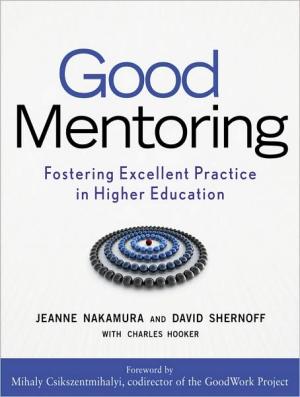
We pass on our traits through our genes but our cherished values, beliefs, and practices are transmitted through those units of meaning called memes. This remarkable book provides an authoritative account of how 'good work' endures in the sciences—and has profound implications for the quality of work across the professional landscape. This book should sow the seeds of greatness for protégés and mentors alike, and well beyond the discipline of science. Mentoring lineages are the hallmark of disciplines that endure and have impact, a reality that the authors powerfully communicate. Good Mentoring is a landmark study with implications for the continued vibrancy of any discipline. This is a fresh, eye-opening perspective on the social transmission of professional lineages. (From the Publisher)
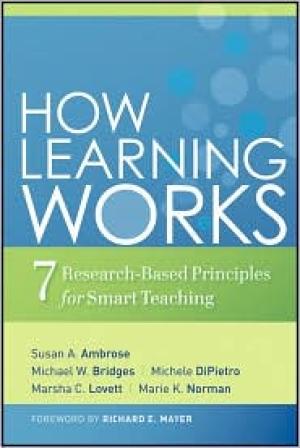
Click Here for Book Review Praise for How Learning Works How Learning Works is the perfect title for this excellent book. Drawing upon new research in psychology, education, and cognitive science, the authors have demystified a complex topic into clear explanations of seven powerful learning principles. Full of great ideas and practical suggestions, all based on solid research evidence, this book is essential reading for instructors at all levels who wish to improve their students' learning. This book is a must-read for every instructor, new or experienced. Although I have been teaching for almost thirty years, as I read this book I found myself resonating with many of its ideas, and I discovered new ways of thinking about teaching. Thank you Carnegie Mellon for making accessible what has previously been inaccessible to those of us who are not learning scientists. Your focus on the essence of learning combined with concrete examples of the daily challenges of teaching and clear tactical strategies for faculty to consider is a welcome work. I will recommend this book to all my colleagues. As you read about each of the seven basic learning principles in this book, you will find advice that is grounded in learning theory, based on research evidence, relevant to college teaching, and easy to understand. The authors have extensive knowledge and experience in applying the science of learning to college teaching, and they graciously share it with you in this organized and readable book. (From the Publisher)
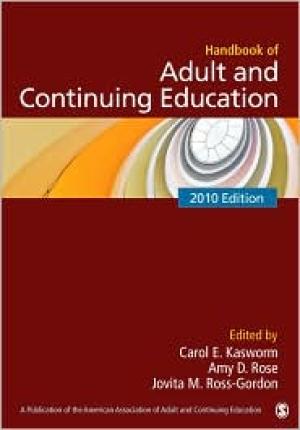
An authoritative overview of the current state of the field of adult and continuing education Drawing on the contributions of 75 leading authors in the field, this 2010 Edition of the respected Handbook of Adult and Continuing Education provides adult education scholars, program administrators, and teachers with a solid foundation for understanding the current guiding beliefs, practices, and tensions faced in the field, as well as a basis for developing and refining their own approaches to their work and scholarship. Offering expanded discussions in the areas of social justice, technology, and the global dimensions of adult and continuing education, the Handbook continues the tradition of previous volumes with discussions of contemporary theories, current forms and contexts of practice, and core processes and functions. Insightful chapters examine adult and continuing education as it relates to gender and sexuality, race, our aging society, class and place, and disability. Key Features Expanded coverage of social justice, the impact of technology, and the global dimensions of adult and continuing education provides a useful update on theories and practices in the field as they have evolved during the last decade. An invaluable introductory overview and synthesis of key aspects of the field of practice and scholarship acquaints new readers to the field The centrality of social justice in adult and continuing education is addressed in a new section. The broader global context of contemporary adult and continuing education is covered in a final section. (From the Publisher)
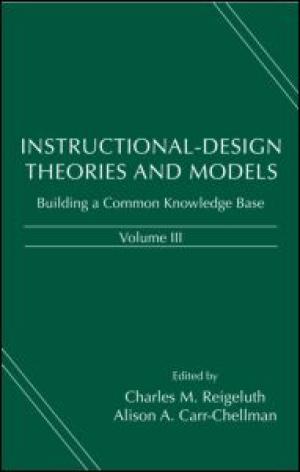
Instructional-Design Theories and Models, Volume III: Building a Common Knowledge Base is perhaps best described by its new subtitle. Whereas Volume II sought to comprehensively review the proliferating theories and models of instruction of the 1980’s and 1990’s, Volume III takes on an even more daunting task: starting to build a common knowledge base that underlies and supports the vast array of instructional theories, models and strategies that constitute the field of Instructional Design. Unit I describes the need for a common knowledge base, offers some universal principles of instruction, and addresses the need for variation and detailed guidance when implementing the universal principles. Unit II describes how the universal principles apply to some major approaches to instruction such as direct instruction or problem-based instruction. Unit III describes how to apply the universal principles to some major types of learning such as understandings and skills. Unit IV provides a deeper understanding of instructional theory using the structural layers of a house as its metaphor and discusses instructional theory in the broader context of paradigm change in education. (From the Publisher)
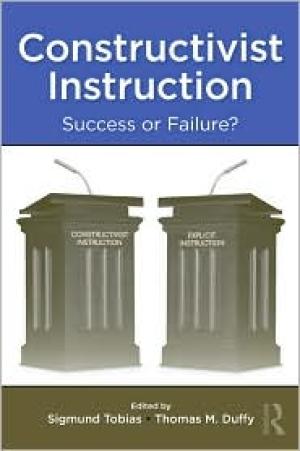
Constructivist Instruction: Success or Failure? brings together leading thinkers from both sides of the hotly debated controversy about constructivist approaches to instruction. Although constructivist theories and practice now dominate the fields of the learning sciences, instructional technology, curriculum and teaching, and educational psychology, they have also been the subject of sharp criticism regarding sparse research support and adverse research findings. This volume presents: the evidence for and against constructivism; the challenges from information-processing theorists; and commentaries from leading researchers in areas such as text comprehension, technology, as well as math and science education, who discuss the constructivist framework from their perspectives. Chapters present detailed views from both sides of the controversy. A distinctive feature of the book is the dialogue built into it between the different positions. Each chapter concludes with discussions in which two authors with opposing views raise questions about the chapter, followed by the author(s)’ responses to those questions; for some chapters there are several cycles of questions and answers. These discussions, and concluding chapters by the editors, clarify, and occasionally narrow the differences between positions and identify needed research. (From the Publisher)
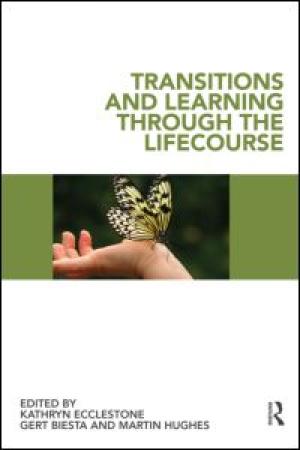
Like many ideas that inform policy, practice and research, ‘transition’ has many meanings. Children make a transition to adulthood, pupils move from primary to secondary school, and there is then a movement from school to work, training or further education. Transitions can lead to profound and positive change and be an impetus for new learning for some individuals and be unsettling, difficult and unproductive for others. Transitions have become a key concern for policy makers and the subject of numerous policy changes over the past ten years. They are also of interest to researchers and professionals working with different groups. Transitions and Learning Through the Lifecourse examines transitions across a range of education, life and work settings. It explores the claim that successful transitions are essential for educational inclusion, social achievement, and economic prosperity and that individuals and institutions need to manage them more effectively. Aimed primarily at academic researchers and students at all levels of study across a range of disciplines, including education, careers studies, sociology, feminist and cultural studies, this book is the first systematic attempt to bring together and evaluate insights about educational, life and work transitions from a range of different fields of research. Contributions include: The transition between home and school The effects of gender, class and age Transitions to further and higher education Transitions for students with disabilities Transitions into the workplace Learning within the workplace Approaches to managing transitions (From the Publisher)
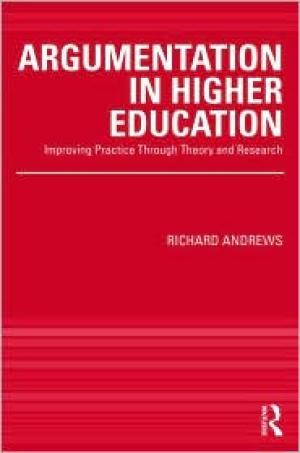
Argumentation in Higher Education offers professors, lecturers and researchers informative guidance for teaching effective argumentation skills to their undergraduate and graduate students. This professional guide aims to make the complex topic of argumentation open and transparent. Grounded in empirical research and theory, but with student voices heard strongly throughout, this book fills the gap of argumentation instruction for the undergraduate and graduate level. Written to enlighten even the most experienced professor, this text contributes to a better understanding of the demands of speaking, writing, and visual argumentation in higher education, and will undoubtedly inform and enhance course design. The book argues for a more explicit treatment of argument (the product) and argumentation (the process) in higher education, so that the ground rules of the academic discipline in question are made clear. Each chapter concludes with practical exercises for staff development use. Topics discussed include: The importance of argument The current state of argumentation in higher education Generic skills in argumentation The balance between generic and discipline specific skills Information communication technologies and visual argumentation How can we best teach argumentation so that students feel fully empowered in their academic composition? Professors (new and experienced), lecturers, researchers, professional developers and writing coaches worldwide grappling with this question will find this accessible text to be an extremely valuable resource. Richard Andrews is Professor in English at the Institute of Education, University of London. (From the Publisher)
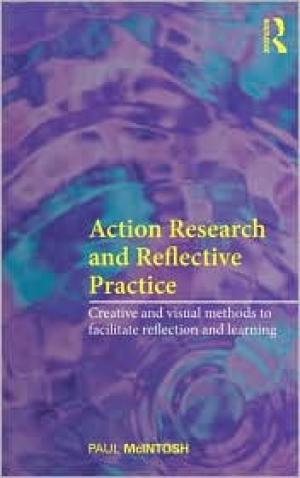
The use of reflection as a tool to support and develop practice is becoming increasingly recognised across education, healthcare and the social sciences. Reflection is assumed to create depth of knowledge and meaning, both for self and those practised upon. Running alongside the use of reflection is the prevalent use of action research which some see as a way of approaching the study of human beings from a philosophical perspective, in which sharing takes place within mutually supportive environments. As a result, many academics and practitioners suggest that one cannot improve the methodology of action research without considering philosophical reflection. In Action Research and Reflective Practice, the author argues that reflective practice and action research can become mechanistic in their use unless fresh creative approaches are employed. Exploring the tension between the use of evidence-based practice, based upon solid ‘objective’ research, and reflection, with its ‘subjectivity’ and personal perception, this book argues that reflection is research. The author increases the use and effectiveness of both action research and reflection through the application of new creative and visual approaches. Action Research and Reflective Practice demonstrates that creative approaches can be utilised effectively in critically reflexive ways, creating a new style of action research that is both innovative and theoretically robust. The resultant approach will improve evidence-based research in education, healthcare and other social sciences to enhance perception and understanding of events, identity and self. This book will be highly beneficial to undergraduate and postgraduate students, as well as educational and social researchers, across a broad range of subjects within the social sciences. (From the Publisher)
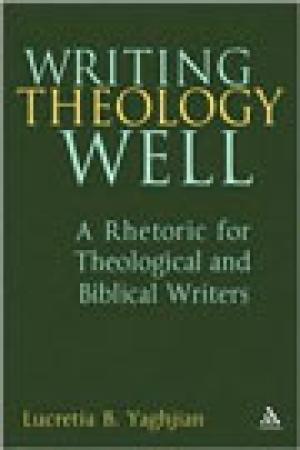
In its creative integration of the disciplines of writing, rhetoric, and theology, Writing Theology Well provides a standard text for theological educators engaged in the teaching and mentoring of writing across the theological curriculum. As a theological rhetoric, it will also encourage excellence in theological writing in the public domain by helping to equip students for their wider vocations as writers, preachers, and communicators in a variety of ministerial and professional contexts. (From the Publisher)
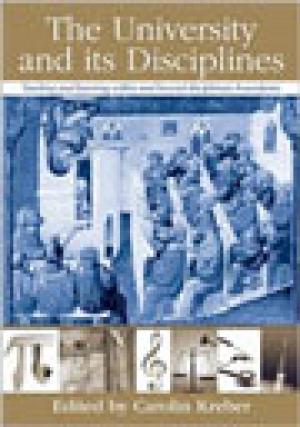
University teaching and learning take place within ever more specialized disciplinary settings, each characterized by its unique traditions, concepts, practices and procedures. It is now widely recognized that support for teaching and learning needs to take this discipline-specificity into account. However, in a world characterized by rapid change, complexity and uncertainty, problems do not present themselves as distinct subjects but increasingly within trans-disciplinary contexts calling for graduate outcomes that go beyond specialized knowledge and skills. This ground-breaking book highlights the important interplay between context-specific and context-transcendent aspects of teaching, learning and assessment. It explores critical questions, such as: What are the ‘ways of thinking and practicing’ characteristic of particular disciplines? How can students be supported in becoming participants of particular disciplinary discourse communities? Can the diversity in teaching, learning and assessment practices that we observe across departments be attributed exclusively to disciplinary structure? To what extent do the disciplines prepare students for the complexities and uncertainties that characterize their later professional, civic and personal lives? Written for university teachers, educational developers as well as new and experienced researchers of Higher Education, this highly-anticipated first edition offers innovative perspectives from leading Canadian, US and UK scholars on how academic learning within particular disciplines can help students acquire the skills, abilities and dispositions they need to succeed academically and also post graduation. Carolin Kreber is Professor of Teaching and Learning in Higher Education and the Director of the Centre for Teaching, Learning and Assessment at the University of Edinburgh (From the Publisher)